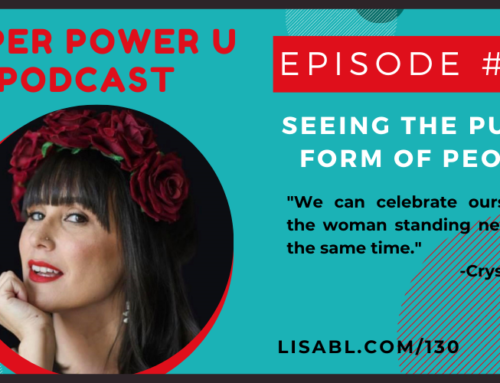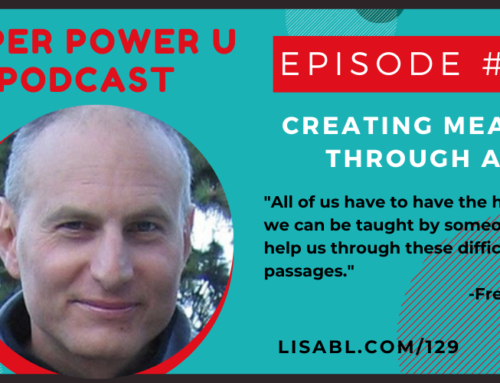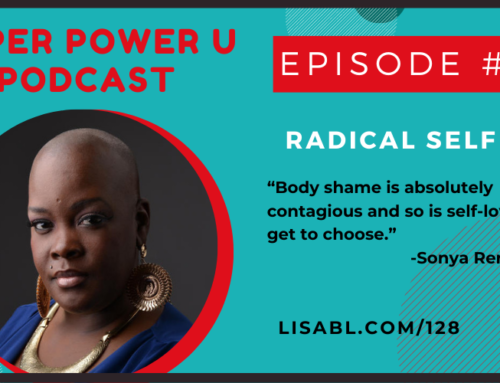Thank you so much to Rina Liddle of LiddleWorks for asking me to clarify what I meant by “Feminine Leadership Models” in Episode #12 – Reasoning by First Principles with Kacy Qua. Rina asked “Are we talking essentialism or traditional concepts of gender performance?”
I must admit that I wasn't 100% sure what essentialism was so I looked to Google where I was informed that essentialism is:
“a belief that things have a set of characteristics that make them what they are, and that the task of science and philosophy is their discovery and expression; the doctrine that essence is prior to existence.
-
the view that all children should be taught on traditional lines the ideas and methods regarded as essential to the prevalent culture.
-
the view that categories of people, such as women and men, or heterosexuals and homosexuals, or members of ethnic groups, have intrinsically different and characteristic natures or dispositions.”
From my reading of that, I would say then, that yes, I believe that Feminine Models of Leadership are more intuitive to (some) women and might even have some basis in our biology but that no, Feminine Models of Leadership are not the sole territory of women and anyone can lead (or relate or behave) in a way that is informed by the larger feminine archetype or Model.
It seems like a good time to post these notes from a talk I did a few months ago for Brian Lee's “Focus on Leadership” Series. I'm posting the rough talk without much editing as a conversation point, not as a carved-in-stone stated belief system.
-Lisa
October 2017
Most of us have been raised with a model of power and leadership steeped in the history of male-centric, top-down, command and control culture. But studies show that when women adopt common type of approach and manifest the traits our culture considers to be effective (at least for men) we're inclined to punish them for it and often perceive them in a negative light (men, and women too). Social science experiments repeatedly surface our inclination to fault women for career ambition and entrepreneurial smarts even while rewarding it in men.
But there's a fast-growing, feminine model of leadership gaining momentum which suggests that an emerging Feminine model of leadership values a different set of skills and inclinations and which tends to focus on engaging and mobilizing our collective needs and aspirations. As that grows and women gain confidence in their natural leadership skills by seeing the impact that model can achieve, they will also be more easily recognized as natural leaders… and men will adapt their leadership styles accordingly.
Generally, though of course not necessarily in all cases, women lean towards emotional intelligence, inclusiveness, and support of others, so the feminine paradigm is centered around connection, communication, and collaboration.
Brain research conducted by Louann Brizandine and others, suggests that some gender differences are biologically and hormonally-based. Extra estrogen in the female brain hardwires women to have some inborn natural aptitudes including verbal agility, inclination towards connection, skill at diffusing conflict and feeling and utilizing empathy. (Female newborns as young as 24 hours old, for example, respond more quickly to the distressed signals of another baby.)
So, by what means can we as a culture model and support leadership that capitalizes on the hardwiring in our brains that utilizes our innate skills? It's our job as women in all type of leadership positions, to replace every instance of competition and conflict with community and connection. It's our birthright, and it's built into the Female Brain.
But since most of us have been raised with the belief that there is only room for so many women at the top, we sometimes default to believing that we have to compete with each other to get ahead, because if one of us wins then the other loses.
I hold that this is entirely false. Competition has a very low position in the feminine leadership paradigm. Instead, it's more natural for us to cultivate incredible, supportive relationships with other women. Rich, encouraging, friendships as well as peer and mentor relationships.
The primary way to change the status quo for women everywhere is to work together remembering that when one of us wins, we all rise, and the more of us that get ahead the better it is for all of us.
So, seek out people you admire and work together to move towards a feminine model that uplifts other women. And while you're celebrating the women in your sisterhood, also identify and recognize the women who came before you. A post, an acknowledgment of women in history, or in your life who have changed your path and naming them supports the collective.
So, is there one small way you can commit to changing the world for one woman? It could be something small or large; Give a talk about how to succeed, have a mentoring lunch or offer a compliment, encouragement or a word of advice.
Just imagine how different our world would be if everyone one of us made the world better in some small way. What are you willing to commit to?
The world needs us!
Thank you!
————
References:
The Female Brain by Louann Brizendine (August 7, 2007)
Outtakes:
What to do with envy when it shows up? If you notice feeling envious of another woman's success, notice it, know that it helps you identify what you want and desire, see how your situation is the same but different and celebrate the other woman's success which changes the energy around it.
We want to be vigilant about the choices we make with regards to our community. Jim Rhon famously points out that we are the average of the 5 people we surround ourselves with and we become the company we keep. Since our limbic brains function in reflection to other people it's critical to choose people who raise us up instead of tearing us down.
Seek out amazing women and women you can support. Call them out, cultivate relationships with them at work, on social media and out in the world.


![#132: [SOLO] What I Learned from 2020](https://lisabl.com/wp-content/uploads/2020/12/what-I-learned-from-2020-Banner--500x383.png)





Leave A Comment